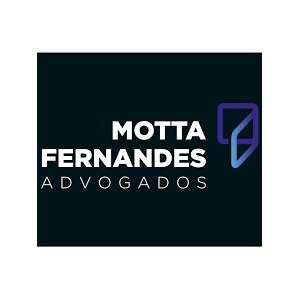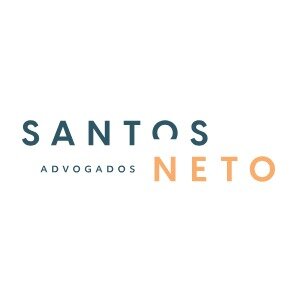Best Equity Capital Markets Lawyers in São Paulo
Share your needs with us, get contacted by law firms.
Free. Takes 2 min.
List of the best lawyers in São Paulo, Brazil
About Equity Capital Markets Law in São Paulo, Brazil
São Paulo stands as Brazil’s financial heart, hosting the country’s largest stock exchange, B3 (Brasil Bolsa Balcão). Equity Capital Markets (ECM) law in São Paulo refers to the legal framework that governs the issuance, trading, and regulation of securities such as stocks, ensuring transparent access to capital for businesses and protecting investors. ECM activity spans Initial Public Offerings (IPOs), follow-on offerings, private placements, and rights offers. São Paulo’s ECM environment is shaped by local regulations as well as broader federal laws, making legal guidance crucial for those participating in these markets.
Why You May Need a Lawyer
Legal advice is essential for navigating the complexities of ECM in São Paulo. Common situations where you may need an ECM lawyer include:
- Planning an IPO or listing a company on B3
- Drafting and reviewing share subscription agreements and prospectuses
- Complying with regulatory filings and disclosures with the Comissão de Valores Mobiliários (CVM), Brazil’s securities regulator
- Structuring follow-on offerings, rights issues, or private placements
- Dealing with shareholder disputes in the context of capital market transactions
- Advising on mergers, acquisitions, or restructuring involving equity instruments
- Managing insider trading policies and market abuse issues
- Assisting foreign investors with local compliance and investment structures
Lawyers ensure that transactions are legally compliant and minimize the risk of regulatory penalties or civil litigation, supporting a smooth capital-raising process.
Local Laws Overview
Equity Capital Markets transactions in São Paulo operate under a combination of federal laws, stock exchange rules, and local practices. The most relevant frameworks include:
- Brazilian Corporation Law (Law 6.404/1976): Governs the formation, structure, and offering of shares by corporations.
- Capital Markets Law (Law 6.385/1976): Establishes the rules for securities markets operation, regulated by the CVM.
- CVM Regulations and Instructions: The CVM issues a range of binding instructions (like CVM Instruction 400 for public offerings) that detail disclosure requirements, registration processes, and investor protections.
- B3’s Own Listing Rules: All issuers must comply with specific listing requirements, corporate governance standards, and reporting obligations established by the stock exchange.
- Anti-Money Laundering & Anti-Corruption Rules, including compliance measures that must be adopted by market participants.
- Tax Regulations that impact capital gains, dividends, and financial transaction taxes for companies and investors.
São Paulo has a sophisticated legal environment with a well-established securities regulator and active business community, but changes in regulation and enforcement trends make legal guidance highly recommended.
Frequently Asked Questions
What is an Initial Public Offering (IPO) in Brazil?
An IPO is when a private company offers its shares to the public for the first time, listing on B3. This process involves due diligence, regulator approval, drafting a prospectus, and meeting stringent corporate governance and disclosure standards.
Who regulates equity offerings in São Paulo?
The Comissão de Valores Mobiliários (CVM) is the federal agency overseeing the issuance and trading of securities in Brazil. B3 also enforces its own listing and compliance rules for all equity transactions.
Are there specific requirements for foreign investors in São Paulo’s equity markets?
Yes. Foreign investors must register with the CVM and the Brazilian Central Bank, often using authorized representatives in Brazil. Additional requirements relate to taxation and reporting.
What disclosures must a company make during an equity offering?
Companies must provide a prospectus with detailed financials, risk factors, use of proceeds, management background, and other material information to enable informed investment decisions.
Can private companies raise capital on B3?
No. Only corporations organized as “Sociedades por Ações” (S.A.) and meeting B3’s listing requirements can access the exchange for capital raising.
What is a “follow-on” offering?
A follow-on is a public offering of new or existing shares by a company that is already listed. It allows companies to raise additional equity capital from the market after their IPO.
How are insider trading and market abuse regulated?
Brazilian law prohibits insider trading and market manipulation. Companies and market participants must implement strong compliance controls to prevent unauthorized disclosure and misuse of confidential information.
What are the key risks in an equity offering?
Legal risks include incomplete disclosures, regulatory non-compliance, potential liability for misleading statements, and shareholder litigation. Economic risks relate to market volatility and investor demand.
How long does the IPO process usually take in São Paulo?
Typically, the process takes several months, depending on the company's readiness, the complexity of the offering, regulatory reviews, and market conditions.
Do companies need ongoing legal support after listing?
Yes. Listed companies must meet continuous disclosure obligations, hold shareholder meetings, comply with corporate governance rules, and update internal policies, all of which benefit from ongoing legal counsel.
Additional Resources
For more information or support regarding Equity Capital Markets in São Paulo, the following resources and organizations may be helpful:
- Comissão de Valores Mobiliários (CVM) - The main securities market regulator in Brazil.
- B3 (Brasil Bolsa Balcão) - The São Paulo stock exchange, providing detailed guidelines for issuers and investors.
- Brazilian Association of Capital Market Lawyers (ABAMEC) - Offers educational events and publications about local ECM practices.
- Brazilian Institute of Corporate Law (IBRADEMP) - Focuses on corporate governance and capital markets legal development.
- São Paulo Lawyers’ Association (OAB-SP) - A resource for finding licensed ECM lawyers in the region.
Next Steps
If you need legal assistance regarding Equity Capital Markets in São Paulo, begin by documenting your specific goals and any ongoing or potential transactions. Prepare your company’s corporate documents and financial information, as these will be essential for legal counseling. Consider consulting with a local lawyer who specializes in ECM and is familiar with CVM, B3, and relevant regulations. A qualified legal advisor will help you evaluate your options, ensure compliance, and represent your interests throughout the process. Take time to compare options and don’t hesitate to ask for references, experience in ECM, and a clear outline of legal fees before proceeding.
Lawzana helps you find the best lawyers and law firms in São Paulo through a curated and pre-screened list of qualified legal professionals. Our platform offers rankings and detailed profiles of attorneys and law firms, allowing you to compare based on practice areas, including Equity Capital Markets, experience, and client feedback.
Each profile includes a description of the firm's areas of practice, client reviews, team members and partners, year of establishment, spoken languages, office locations, contact information, social media presence, and any published articles or resources. Most firms on our platform speak English and are experienced in both local and international legal matters.
Get a quote from top-rated law firms in São Paulo, Brazil — quickly, securely, and without unnecessary hassle.
Disclaimer:
The information provided on this page is for general informational purposes only and does not constitute legal advice. While we strive to ensure the accuracy and relevance of the content, legal information may change over time, and interpretations of the law can vary. You should always consult with a qualified legal professional for advice specific to your situation.
We disclaim all liability for actions taken or not taken based on the content of this page. If you believe any information is incorrect or outdated, please contact us, and we will review and update it where appropriate.

















